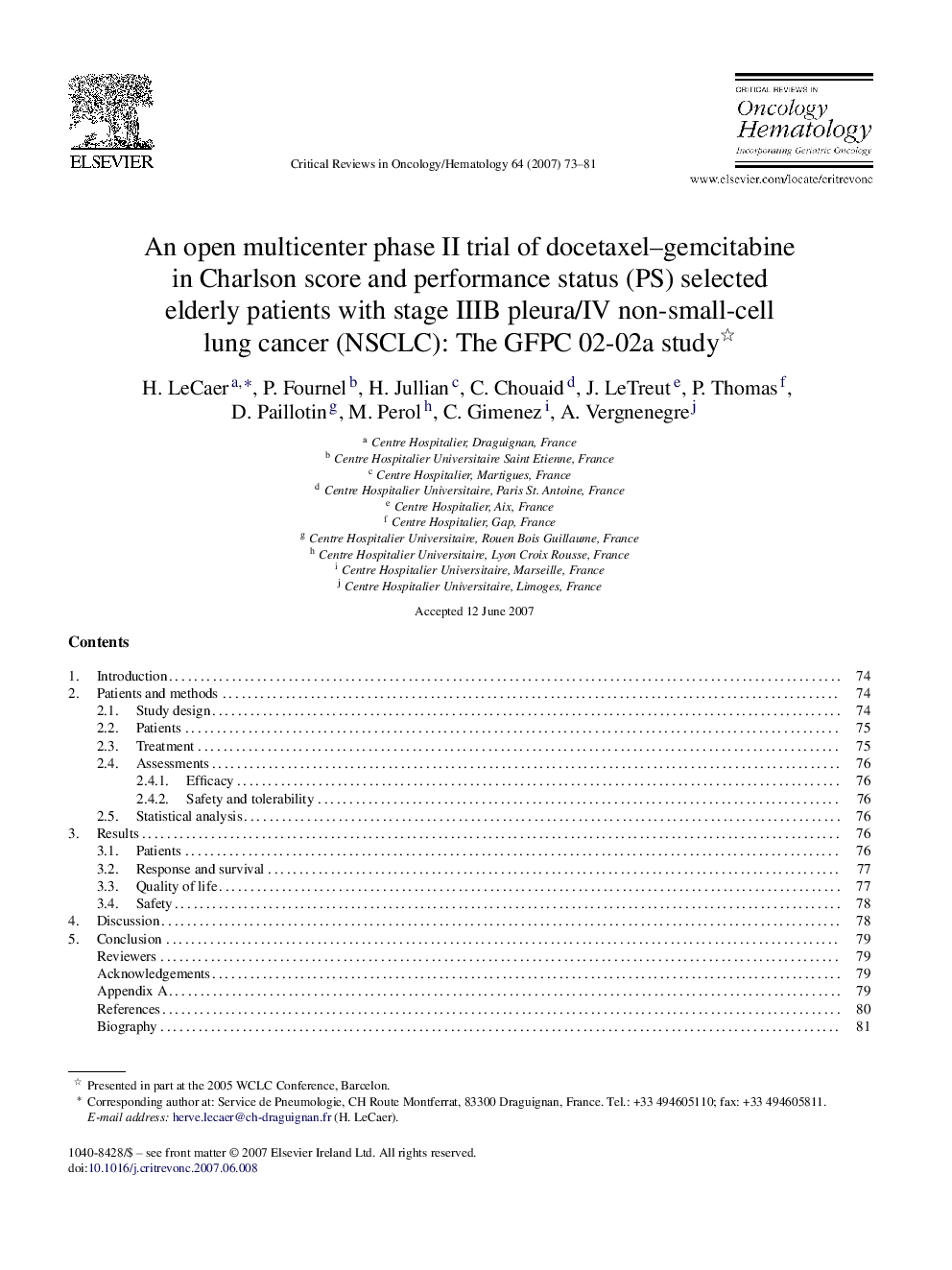| Article ID | Journal | Published Year | Pages | File Type |
|---|---|---|---|---|
| 3330231 | Critical Reviews in Oncology/Hematology | 2007 | 9 Pages |
The aim of this study was to determine the impact of patient selection based on age, comorbidity and performance status on the efficacy of platinum-free combination therapy on non-small-cell lung cancer after 65 years of age.We analyzed the overall response rate, the median survival time, the 1-year survival rate, toxicity and quality of life after one to three 6-week cycles of docetaxel 30 mg/m2 weekly and gemcitabine 900 mg/m2 at weeks 1, 2, 4 and 5. Fifty patients (median age 73.7 years) were eligible. The mean number of comorbid conditions per patient was 0.8 [Balducci L. Lung cancer and aging. ASCO 2005. Educational book. p. 587–91; Piquet J, Blanchon F, Grivaux M, et al. Primary bronchial carcinoma in elderly subjects in France. Rev Mal Respir 2003;20:691–9; Jatoi A, Hillman S, Stella P, et al. Should elderly non-small-cell lung cancer patients be offered elderly-specific trials? Results of a pooled analysis from the North Central Cancer Treatment Group. J Clin Oncol 2005;23:9113–9; Balducci L, Extermann M. Management of cancer in the older person: a practical approach. Oncologist 2000;5:224–37]. Forty-five patients were assessable: 17 (34%) had an objective response, 18 (36%) had stable disease and 10 progressed (20%). The median survival time was 7 months and the 1-year survival rate 23.5%. The main grade III–IV adverse event was neutropenia (32% of patients).ConclusionPlatinum-free dual-agent chemotherapy gives similar results in patients over 65, selected on the basis of their precise age and comorbidity, to that reported in younger subjects.
